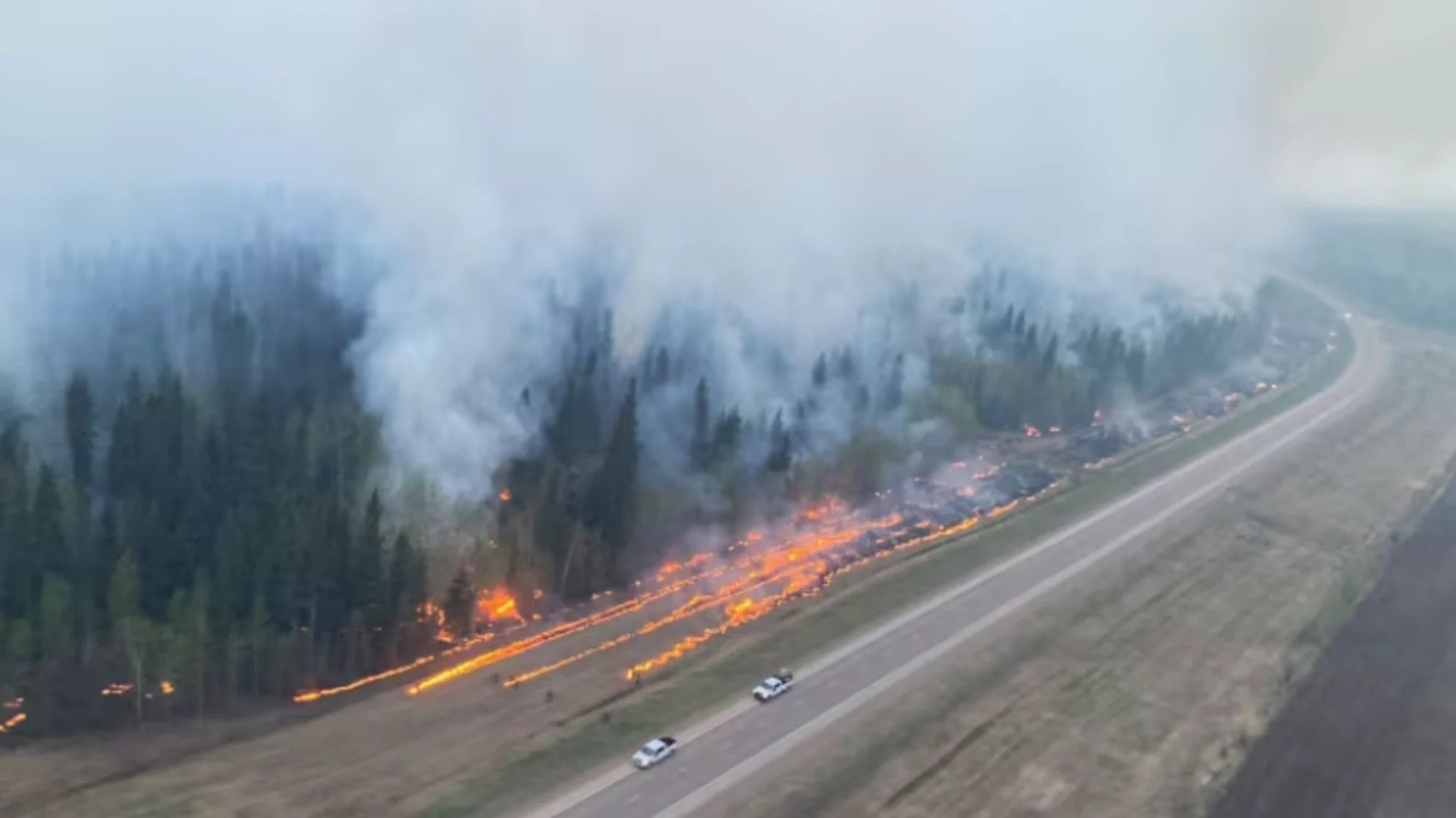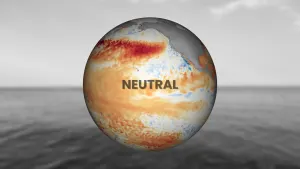
Fort Nelson, B.C., wildfire evacuees allowed to return home
People have started to return to Fort Nelson, B.C., more than two weeks after they were displaced due to a wildfire.
More than 4,500 residents of Fort Nelson and the nearby Fort Nelson First Nation have been out of their homes since May 10 due to the previously out-of-control Parker Lake wildfire just west of the town. People are now returning in their vehicles, according to a Radio-Canada reporter who was at the scene on Monday morning.
"I'm so happy to be home," Sarah Michel, one of the earliest evacuees to arrive back in Fort Nelson, told Radio-Canada Monday morning. "We're very, very close. It's very welcoming community here so I can't wait for everyone to come home."
Emergency services at Fort Nelson General Hospital are resuming with "limited laboratory and medical imaging supports," according to Northern Health. People requiring in-patient care will continue to be transferred to other facilities in the northeast, said the health authority.
CANADA'S WILDFIRES: Visit The Weather Network's wildfire hub to keep up with the latest on the active start to wildfire season across Canada.

Fire crews are seen performing planned hand ignitions in forests near Fort Nelson, B.C., to limit the growth of the nearby Parker Lake wildfire on May 20. (B.C. Wildfire Service)
The B.C. Wildfire Service (BCWS) has also now classified the Parker Lake wildfire as "being held," saying that rain on Sunday and the efforts of firefighters mean the fire is not expected to grow.
But the fire hasn't been extinguished and the service says it expects parts of it to continue burning into the fall.
Evacuation alert in place
On Sunday afternoon, Northern Rockies Regional Municipality (NRRM) Mayor Rob Fraser told residents that they could return at 8 a.m. MT on Monday morning.
Before the evacuation order lifted Monday, Fraser told Radio-Canada he was "ecstatic."
"We were able to find out the imminent threat has been significantly reduced and all of our community infrastructure is in place and critical services are in place, so it's time to come home," he said in an interview around 5 a.m. MT.
SEE ALSO: Essential items for your emergency "grab-and-go" kit
Despite the positive update from Fraser on Sunday, the mayor says the community is not yet completely out of danger.
"We will be putting on an evacuation alert because there are still some fires out there," he said. "The conditions around the region are still extremely dry."

B.C. wildfire fighters assess trees that are at danger of falling as they work to contain the Parker Lake wildfire near Fort Nelson on May 19. The B.C. Wildfire Service says they are being challenged by ongoing drought in the region. (B.C. Wildfire Service)
On Sunday, the BCWS said in a video update that wildfire conditions in general are expected to be volatile over the coming days, as northeast B.C. continues to struggle with significant drought conditions.
"We're going to have some places that will get rain, others will stay dry," Eric Kopetski, a fire behaviour analyst, said in the update.
"In the areas that stay dry, we're expecting to see ... some fairly bigger surface fire, showing that the fire still has lots of potential.
"With the rain, we're going to see many areas and with very subdued fire behaviour ... however, we're still in very severe drought in this area and it's causing really significant challenges to our firefighters."

In addition to the Parker Lake wildfire, firefighters are also working to tackle the much larger Patry Creek wildfire around 25 kilometres north of the community, a holdover fire which first started in 2023.
"The summer is going to be a long one. I think it's had an early start again," said Hugh Murdoch, a BCWS incident commander.
"And there seems to be just so much fire on the landscape so early. It's not just lightning that's going to give us our [fire] starts, but these holdover fires from previous year."
The Parker Lake wildfire is currently burning over an area of 123 square kilometres, while the Patry Creek wildfire occupies an area of around 643 square kilometres, according to the BCWS.
Both fires are burning near Fort Nelson, which is in the province's far northeast, about 1,000 kilometres north of Vancouver and about 800 kilometres northwest of Edmonton.
Fraser said that anyone who needed help to get back home should call the regional district at 250-775-0933, and urged residents coming back to be patient with business owners as they slowly begin resuming operations.
He also said that there will be a reception centre set up to assist returning residents.
Some homes damaged
The NRRM has previously said that 10 properties in Fort Nelson were damaged by the Parker Lake blaze, and four homes were destroyed, as the fire spread on May 10.
In an update on Sunday, the Fort Nelson First Nation says that while it didn't lose homes to the fire, some areas that were culturally significant have been damaged.
WATCH: Wildfire smoke travels across the country
"To date, there have been no impacts to physical structures in our community of Fort Nelson First Nation," officials wrote in a letter posted to social media.
"However, we have experienced some impacts to cultural assets in the Snake River area, and we will work with our community members and stakeholders to rebuild these assets."

Fire crews are seen performing planned hand ignitions in forests near Fort Nelson, B.C., to limit the growth of the nearby Parker Lake wildfire on May 12. The fire continues to pose a threat to the town, but officials said residents could return early next week on Sunday. (B.C. Wildfire Service)
Fraser told a community update on Friday in Taylor, B.C., 400 kilometres south of Fort Nelson, that water, sewer, electricity and police services have all largely been restored in the town.
He said medical services will be restored in stages, and residents must consider delaying their return if they need specialized health care.
The Northern Health Authority said in an update Sunday that emergency department services would resume at the Fort Nelson General Hospital with limited lab and medical imaging supports, with other departments expected to restart in the weeks to come.
"Northern Health encourages returning residents to be aware that while the emergency department is open, individuals requiring hospital admission for inpatient care will temporarily continue to be transferred to other facilities in the northeast," the authority wrote in a statement.
Thumbnail courtesy of BC Wildfire Service via CBC.
This article was originally written by Akshay Kulkarni and published for CBC News









